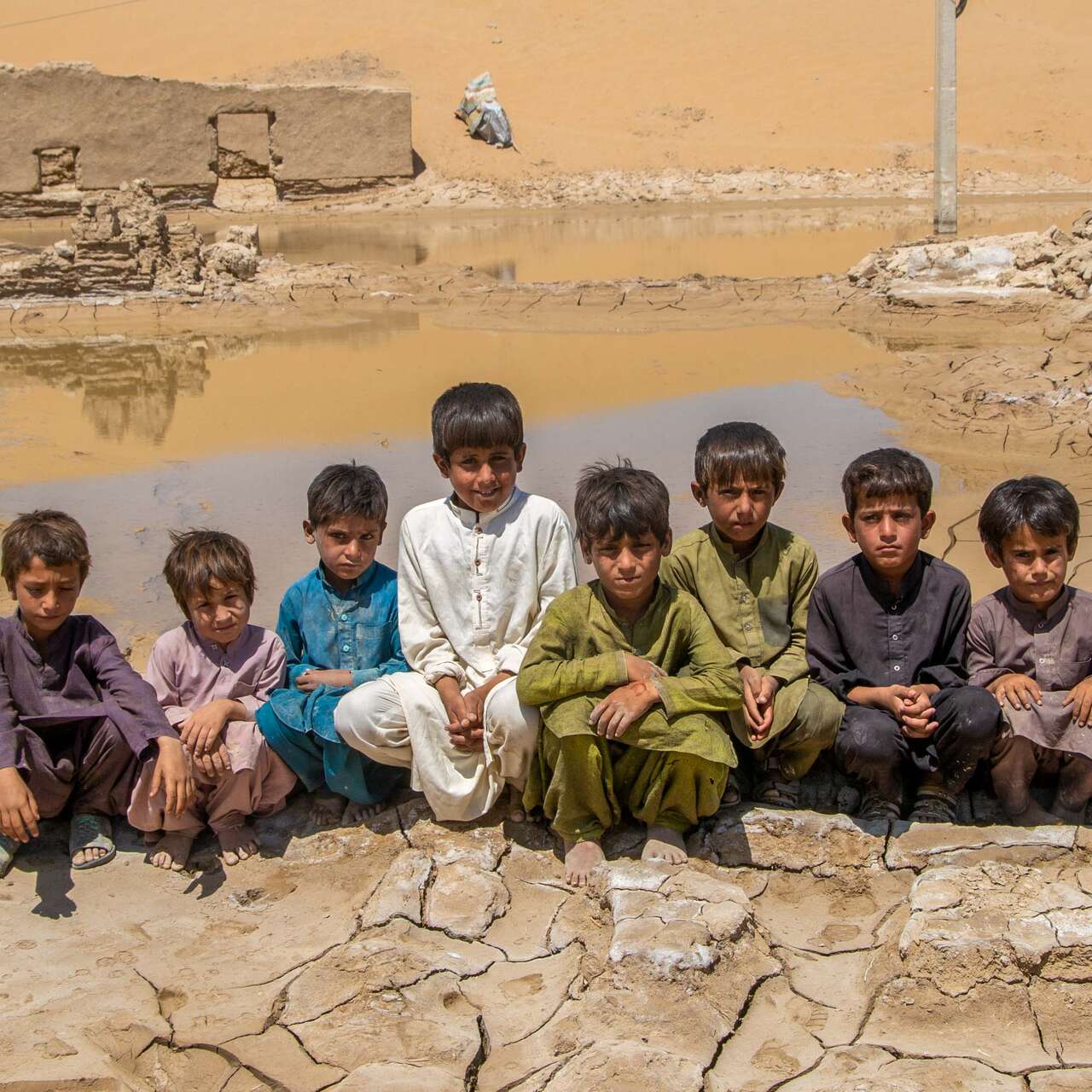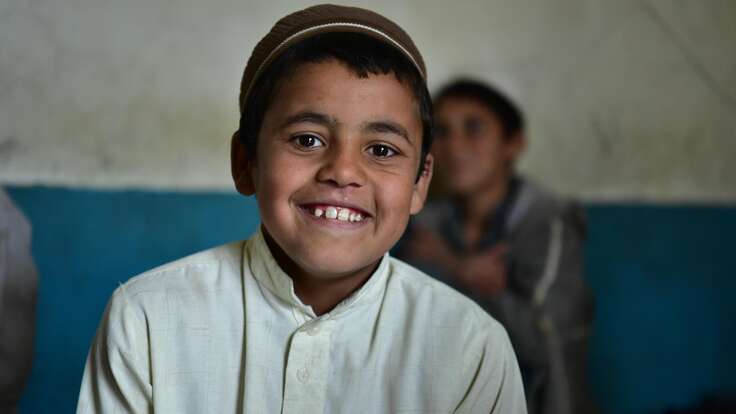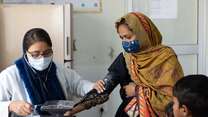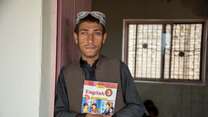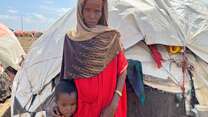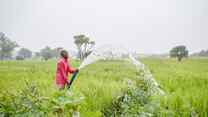Country facts
- Total population: 196 million
- People displaced by crisis: 3.2 million
- Rank in Human Development Index: 147 out of 188
IRC response
- Started work in Pakistan: 1980
Pakistan, located in South Asia, is one of the most disaster-prone countries in the world. The International Rescue Committee helps vulnerable Pakistanis rebuild from natural disasters and assists refugees from neighbouring Afghanistan.
Pakistan has become increasingly vulnerable to humanitarian crises due to regional instability, climate change and widespread poverty.
Disasters both natural and man-made have plagued the country for over a decade. Earthquakes and monsoon floods frequently effect millions, rendering them homeless and in need of food, water and shelter. At the same time Pakistan is working to eradicate terrorism from the country.
To address emerging humanitarian needs, the government of Pakistan has adopted the United Nations’ Sustainable Development Goals. These include no poverty, good health and wellbeing, and quality education.
Pakistan has several populations each with a unique set of humanitarian challenges: ccommunities temporarily displaced by violence; many registered and unregistered Afghan refugees; and people uprooted by natural disasters such as floods or drought.
Given such challenges, quality of life for many Pakistanis suffers greatly. Many children lack basic education and are unprepared for life and work.
Additionally, health care services often do not offer support for the unique needs of women and girls. A high number of women die during, before or after childbirth; and girls often do not have enough information to make informed decisions about their health.
The IRC’s mission is to help people whose lives and livelihoods are shattered by conflict and disaster to survive, recover and gain control of their future.
We first began working in Pakistan in 1980, providing emergency relief, health care, education, job training and other essential services in affected communities. Since then, the IRC has expanded to support communities in all eight provinces and territories of Pakistan.
As vulnerable Pakistanis struggle to recover from poverty and humanitarian challenges, the IRC is focusing its efforts in Islamabad, Khyber Pakhtunkhwa, Sindh, Punjab and Balochistan by:
- assisting flood and earthquake survivors with emergency relief and ongoing services;
- building and repairing schools;
- setting up "child-friendly spaces" where children can safely play, learn and start to heal from trauma;
- providing clean water and sanitation, and encouraging good hygiene;
- supporting primary and reproductive healthcare through facilities in rural areas;
- offering job training and promoting job creation;
- providing cash assistance to help vulnerable families rebuild and meet basic needs;
- working to improve the reading skills of 3.2 million children across Pakistan through the Pakistan Reading Project;
- empowering vulnerable communities with choice and freedom by emphasising the use of cash over in-kind humanitarian assistance;
- responding quickly to emergencies through our country emergency team.
- investing in preparedness and risk reduction of the communities most prone to disasters through school and village-based disaster risk management and reduction initiatives;
The IRC’s work in Pakistan is more critical than ever as the country strives to assist millions of displaced citizens, Afghan refugees and other vulnerable communities. We pledge to put the needs of those most affected by such disasters and challenges, particularly women and girls, at the forefront of our efforts and to achieve measurable improvements in health, safety and education. Here’s a closer look at some of the work we will be doing over the next few years to achieve our goals.
We will continue to support Pakistanis who have been temporarily displaced from and those returning to their homes, expanding our reach to places where the need is the greatest. We will also build on recent governmental reforms to achieve lasting improvements in the lives of those in need.
IRC teams and partners expect to reach 1.4 million people by the year 2020, focusing on the following areas:
Health
We plan to improve reproductive health for women and adolescent girls by raising awareness on key issues and ensure they are protected from and treated for complications of pregnancy and childbirth, and receive pre and post-natal care.
Safety
People should be safe in their homes and communities, and receive support when they experience harm. As a lead protection agency in Pakistan, the IRC will focus on keeping children and adults safe from abuse and exploitation. This will be achieved through programmes providing psychosocial, health and legal documentation aid, and working with government ministries, policy makers and educators to discourage abuse in schools.
The IRC will enhance protection through social centres, child-friendly spaces and psychological support. We will also reduce disaster risk through better planning, response and use of resources.
Education
School-aged children should have age-appropriate literacy, numeracy and social and emotional skills. Toward this outcome, we will improve children’s reading and writing skills by providing high quality materials for students, professional training for teachers and effective engagement programmes for parental participation and community support.
To narrow the gender gap, the IRC will incorporate gender-focused programming into all activities. As in all our efforts, the IRC will strive to reach more people more quickly, increase the effectiveness of our work, listen to the concerns of those affected by our work, and hold ourselves accountable for our actions.
